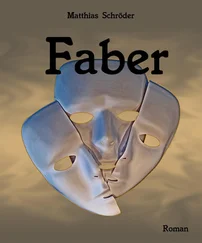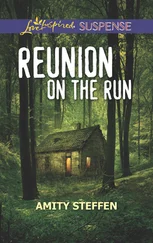We were at the breakfast table. It was a Saturday, early summer. You were almost done with your first year of teaching, and while we should have been looking forward to the summertime together, the time seemed, to me, touched with a danger I couldn’t fully admit. Weekends had become a strain. You’d let me sleep in. Then when I awoke, you’d suit up for a run. This morning that I remember, Meadow must have filled you in on some of our recent experiments while I was still in bed. You gave me a significant stare across the table.
“Meadow,” you said, tapping her leg. “It’s almost time for Dora . You can go and watch Dora while me and Daddy have some sharing time.”
I smirked. Sharing time had such a punitive ring to it, I could hardly hear it without laughing. Your speech had become rife with institutionalisms. I watched Meadow wipe her mouth and push off from the table, her cane-juice-sweetened Os distended in their inch of milk. After she was gone, you leaned in.
“What are you doing?”
“Eating breakfast.”
“What are you doing collecting dead animals? What the hell makes you think that’s a good idea? Who are you trying to turn her into, Wednesday Addams?”
“That’s funny, Laura.”
“This is not funny. I have had it.”
“Had it with what? It’s nature. Death is natural. She’s not scared of it. She’s wiser for it.”
“She’s not supposed to be wise. She’s supposed to be three and silly and to laugh a lot and not worry.”
“Well, she asked.”
“I don’t believe you,” you said. “That’s the problem. I don’t believe you anymore .” You pressed both hands to your brow. “I don’t believe you. I don’t trust you. Help me , Eric.”
I sat there wishing for something to do, a satisfying punishment of the sort we used to get in grade school in Dorchester when we were bad or rude, and we were instructed to endlessly rewrite our error until we had filled pages and pages with the chant
I pushed in line
I pushed in line
I pushed in line
I pushed in line
I pushed in line
I pushed in line
We’d write until our hands ached, and we were totally purged, ready to begin again, ready to be better.
I looked up to see tears dripping from your jaw, untouched. You toyed with the handle of your coffee mug.
“Please don’t cry, Laura. It was just a dead animal.”
“No,” you said. “No, it was not.”
“I’m not sure what you want,” I said. “Something that I can actually give you.”
“I want to know how this happened. How we became so different. So opposite. How this huge space grew between us.” You looked at me pleadingly. “Were we always like this? I don’t think so. I miss who I thought you were.”
And then you just let go, you just let yourself sob.
It’s not totally relevant for me to sit here and describe what it feels like to watch your wife cry in despair about something you did — no — some way that you are that doesn’t even seem strange or remarkable to you. Despite the fact that I have clearly lost the PR battle here — I mean, I broke the law , in countless ways — I’m still curious to know whether or not I did the wrong thing with the fox. Because in the end I really don’t know what I should have said, and I spend a fair amount of time sitting here wondering how I could have been more like who you thought I was, which sometimes feels productive, and sometimes feels like a rare form of self-battery. And so I have devised a multiple-choice questionnaire, for the reader of this document, whomever she may be if she is not you, Laura, in an effort to conduct, as it were, a sort of study. Here it is:
Is it appropriate to tell a three-year-old child that everything that is alive will die and decompose, including the human body?
Yes or no?
If no, why?
a) Because that is a lie. A dead body does not decompose, but rather is borne off completely intact on the shoulders of a bevy of celestial heartthrobs.
b) Because the question is irrelevant. The teacher has been discredited, for reasons that have multiplied exponentially since then, and therefore whatever he said, whatever factoids he once offered his exceptionally intelligent child, were spurious.
c) Because a guy in his position really should have deferred to his wife, and if he had a brain in his head, he would have known that his wife wasn’t going to like it, and the fact that he went ahead and desecrated a dead fox is proof that he probably didn’t love her anymore anyway, or had given up on her , or had given up on her ability to accept him for who he was, and the fact that they were fighting so viciously over a science experiment was probably a red herring, and underneath it they were probably asking each other the standard late-stage question: Why don’t you love me? / Why don’t you love me ?
Circle your answer and return to:
Erik Schroder RN # 331890
CCI ALBANY
COUNTY CORRECTIONAL INSTITUTION
P.O. BOX 3404
ALBANY, NY 12227

The frog was still alive. When Meadow settled the bucket into the pond water and removed the chicken wire, he startled to life and began to rapidly stroke away from us, deep into the murk. We turned around and traced our steps toward the dirt road.
Just as we reached the road, we heard a car approaching. The car came rapidly over the rise and sped past us, only to come to a dusty halt farther on. Taillights flicked on; the driver turned around and backed up, rolling down the passenger-side window. It was April.
“Well, hello again,” she said.
I couldn’t help but smile. I leaned over and put my hand on the roof of her car. Her arm was hooked over the seat back. Since I’d last seen her, she’d changed into a long, angel-sleeved sheath of yellow, green, and red. In the backseat, I saw her belongings: several crates, a sleeping mat, a duffel bag, a bunch of celebrity magazines.
“I was trying to get used to the idea that I’d never see you again,” I said.
“Not necessary,” she said. “Get on in. I can move all that junk.”
I shook my head. “Thanks. But we were just about to head back and clear out ourselves. You know, head home. Time’s up.”
April leaned forward and gave Meadow a warm smile. “Hey, Chrissy.”
“Hi,” said Meadow, hanging back but smiling a little.
April waved me around the car. “Com’ere,” she said. “I should tell you something.”
I walked to the driver’s side, and leaned forward.
She spoke into my ear. “So. If you head back now, you will be greeted by three Vermont State troopers. Three squad cars. The one came first, and the others came with their sirens off. They’ve already been inside your cabin. I’d say whatever you had in there is now property of the state. Cheese singles and all. There will be more coming soon, is my guess. That poor lady is in a state. She kept saying she had a bad feeling about you.”
I raised my head. The top of the dirt road ended in sky. Everything was quiet.
April leaned forward to peer at Meadow, who was toying with her bucket. “Find any butterflies, baby?”
“No.” Meadow inched closer to the car. “But we freed the frog.”
“Good. That’s good. That’s right .” She looked up at me. “So, Sir John. What will you do? You’ve got about sixty seconds before I take off. I can’t believe I’m even talking to you.”
I opened my mouth, but I could not speak. My mind jammed. All I could think of was — the old lady had a bad feeling about me? April sighed and got out of the car. She moved the duffel into the trunk. Then she gestured to the open door.
Читать дальше













